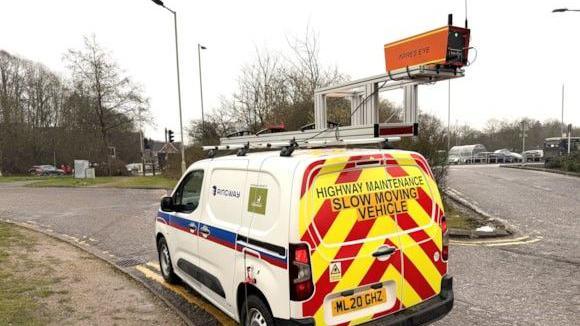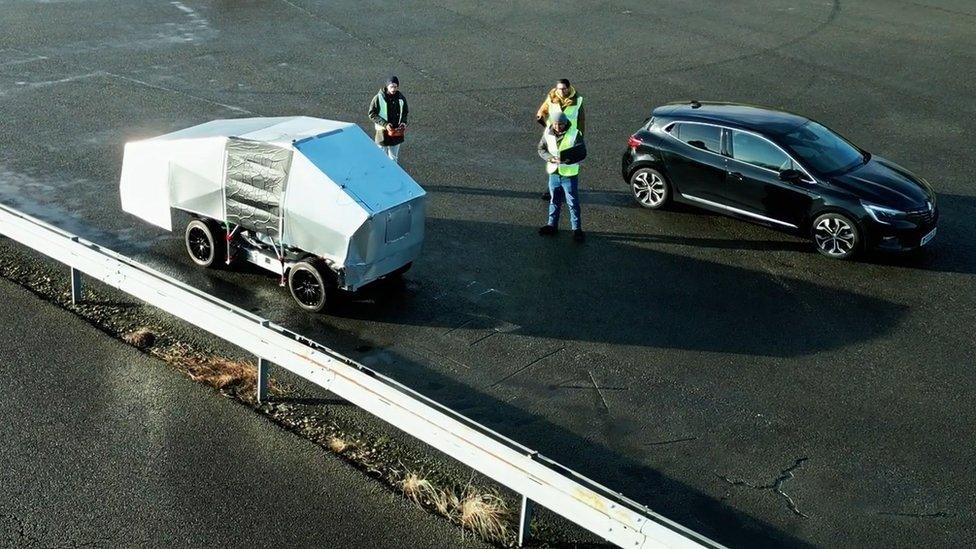AI scanner used to detect potential potholes

The AI technology sits on the top of the council's normal maintenance vehicles and scans the roads
- Published
New artificial intelligence (AI) technology could help a council detect potential potholes before they become a problem.
Hertfordshire County Council has been trialling Robotiz3d's ARRES Eye, a scanner which can be placed on council vehicles and used to collect data as crews go about their usual daily duties.
It scans the road surface to identify potholes, cracks or areas of weakness across the road network.
Phil Bibby, executive councillor for highways, said: "We know that prevention is better than cure – so trialling technology like this that can prevent potholes forming in the first place [and] is also an important part of our long-term strategy."
The dimensions, location, and severity level of defects are displayed on a remote screen in near real time, helping highways engineers to plan road resurfacing programmes and pothole fixes more effectively, the council said.
It added that its team had been collaborating closely with scientists from Robotiz3d to help refine the technology.
Initial trials and testing on a short route were carried out last year and the system was now back in the county for a long-term test.
The scanner will be used to survey a trial route multiple times over a period of several months using laser technology to read the road surface and look for tiny changes as cracks widen in the cold and wet winter weather.
Tracking small changes over time could help the team to identify the early warning signs of deterioration, meaning future potholes could be fixed before they form, the council said.
Mr Bibby added: "We know that our residents care about roads and pavements in the county, and the changeable weather we've had over the last few months, including excessive rainfall and long periods of colder weather, all contribute to potholes appearing and a decline in road surfaces."
He said fixing potholes would remain a challenge, but he hoped the new AI technology could help identify issues at an early stage.
The council said it was proposing an increase of £6m in next year's budget for the maintenance of its highways.
Get in touch
Do you have a story suggestion for Beds, Herts & Bucks?
Follow Beds, Herts and Bucks news on BBC Sounds, Facebook, external, Instagram, external and X, external.
Related topics
- Published10 January 2024
